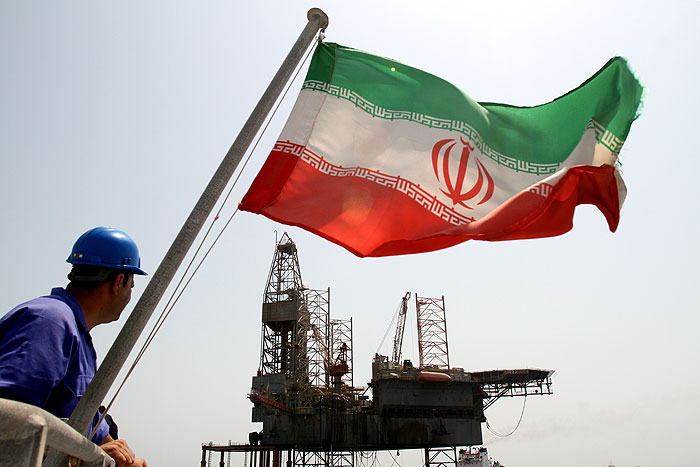Some contractual frameworks similar to Iran Petroleum Contract (IPC) are used by governments and companies in developing nations to attract foreign investment and proceed with development and industrial projects. The new contractual framework serves as a legal instrument to support foreign investment and make incentives for investors in host nations. Similar contractual frameworks are being used in oil-producing countries to encourage investors to invest in them. However, countries have of course customized terms and conditions in their oil and gas contracts.
As far as the efficiency and attractiveness of IPC contracts are concerned, a variety of factors are involved. Some of these factors include compliance with intellectual property rights, regulations protecting foreign investment, political and economic stability, a powerful and independent judiciary system, dispute settlement mechanisms, and infrastructure. If a country can guarantee these factors and adopt regulations in favor of foreign investment and enforces IPC deals, it would most likely attract investment.
Furthermore, transparency and predictability within the judiciary process and dispute settlement can also positively affect foreign investors’ openness to IPC contracts.
IPC advantages over service contract
Due to sanctions imposed on Iran’s petroleum industry, using IPC would help attract more investment. By updating the IPC, the 13th administration intends to further sweeten the terms of contracts in the petroleum industry to pave the way for local and foreign investors. IPC is more flexible than service contracts as far as terms of contracts and financial issues are concerned, which would enable foreign companies to negotiate their desired terms.
Another advantage of IPC is that foreign companies can win shares in Iranian oil and gas projects, thereby enabling foreign parties to get more profits from activity in Iran. IPC deals would require foreign companies to bring their advanced technology and technical know-how to Iran’s petroleum industry, which would definitely help improve the performance of Iran’s petroleum industry.
Iran holds 209 billion barrels of oil in place, coming third in the world, just behind Venezuela and Saudi Arabia with 304 and 262 billion barrels, respectively. Meantime, Iran comes second in terms of global gas reserves with 1,230 tcf of natural gas, just behind Russia with 1,688 tcf. They are followed by Qatar (843 tcf), the United States (433 tcf), Turkmenistan (400 tcf), Saudi Arabia (298 tcf), the UAE (273 tcf), China (247 tcf), Nigeria (203 tcf) and Venezuela (197 tcf).
Standing 3rd in oil reserves and 2nd in natural gas reserves, Iran enjoys a strategic standing that would require attracting investment to stabilize production and boost its international status. Iran’s petroleum industry needs $20-25 billion in investment per annum, which would not augur well.
Easier formalities
Despite financial restrictions caused by sanctions, the Ministry of Petroleum has not neglected investment in the petroleum industry, which drives the national economy, presenting investors with various ways to strike win-win deals.
Saving time in signing contracts has been a major concern. Deputy Minister of Petroleum for Supervision on Hydrocarbon Reserves Sajjad Khalili has said: “Under the 13th administration, the Ministry of Petroleum is trying to issue upstream and downstream licenses for qualified legal persons.”
“It means that a license would be issued for both National Iranian Oil Company (NIOC) and E&P companies for oil projects. That would have the advantage of being issued in less than one year,” he added.
Khalili said Iran had followed the example of Norway and Britain in this regard, adding that oil and gas fields are considered public wealth in both countries.
“In these countries, the process of issuance of a license is steered by sovereign bodies. We can use their experience in Iran’s petroleum industry due to the similar public ownership of oil reserves,” he said.
$28.8bn investment
Minister Owji recently told the OPEC seminar that Iran had, over recent years, signed new oil agreements to develop oil and gas fields and build refinery-integrated petrochemical complexes. He said the terms of new contracts are attractive to investors.
Owji said: “Foreign investors may recoup their investment and costs by selling petroleum products once such projects are launched. To that end, we have signed agreements with many companies including from Russia.”
Planning for a $250 billion investment in the petroleum industry over eight years is among other objectives set out for the Ministry of Petroleum under Javad Owji. Over the past 20 months, $40 billion worth of agreements have been signed with local and foreign companies. Meantime, the projects that are coming on stream or are initiated, are valued at $28.8 billion.
To finance petroleum industry projects, a wide range of options including the National Development Fund of Iran (NDFI), foreign finance, banking resources and money market, bonds, and Islamic financial instruments are available, which oil companies are well familiar with.
Iran Petroleum


Your Comment